|
Index...
|
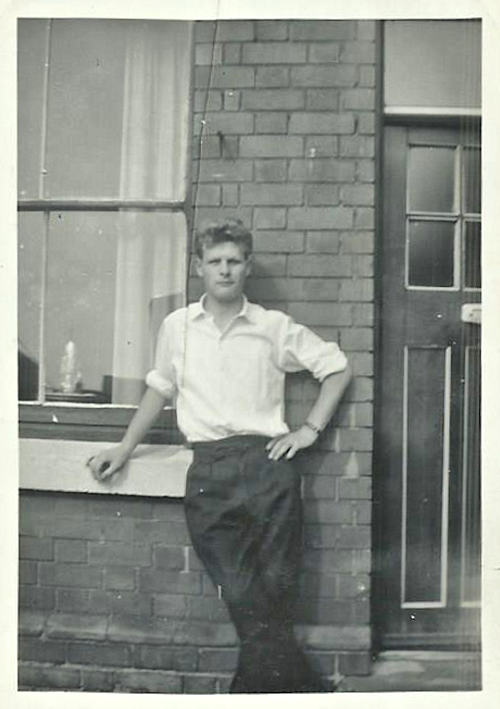
 aving passed my eleven-plus, I went to John Gulson School in Leicester Causeway and walked past the Roxy cinema, turned left into George Eliot Road (where she went to school), and then right along the Springfield Brook. When it rained the brook used to look like a raging torrent and at other times it was coloured when Courtaulds discharged their waste dyes into it. My first class was 1C, and when I told my Dad he said, "That's not very good!" I had to tell him that all our classes took the form letter from the first initial of the class teacher. Mine was Mr. Crisp, then my second class was 2G after "Pop" Gilliam, and I think it changed later to 2B after "Inky" Blacknell took over. He was our Latin teacher and he taught us how to think for ourselves by getting us to talk for one minute on any subject that we cared to choose. He also invited the whole class to his home (in small groups) to play and learn various board games and I remember Scrabble very well. Chess was also on the menu and although I can remember the moves, I was never much good at it.
aving passed my eleven-plus, I went to John Gulson School in Leicester Causeway and walked past the Roxy cinema, turned left into George Eliot Road (where she went to school), and then right along the Springfield Brook. When it rained the brook used to look like a raging torrent and at other times it was coloured when Courtaulds discharged their waste dyes into it. My first class was 1C, and when I told my Dad he said, "That's not very good!" I had to tell him that all our classes took the form letter from the first initial of the class teacher. Mine was Mr. Crisp, then my second class was 2G after "Pop" Gilliam, and I think it changed later to 2B after "Inky" Blacknell took over. He was our Latin teacher and he taught us how to think for ourselves by getting us to talk for one minute on any subject that we cared to choose. He also invited the whole class to his home (in small groups) to play and learn various board games and I remember Scrabble very well. Chess was also on the menu and although I can remember the moves, I was never much good at it.
Other teachers I remember with much affection were Mr. Challis, who taught French and had the habit of walking in a similar way to Groucho Marx, and Tom Cook who took us for Geography. I think it was Mr. Douglas who taught us English Language. Needless to say, you nearly always do well in the subjects taught by teachers you like and I was no exception. However, two teachers I also liked were Mr. Holland, who taught Physics, and Mr. Motz, our Chemistry teacher. He was affectionately known as "Sterling Motz in his H2O". (For younger readers Sterling Moss was an English Formula One racing driver.)
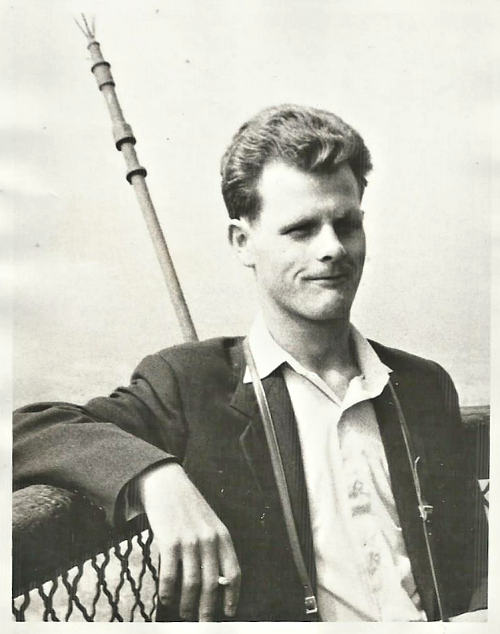
When Tom Cook came into the classroom you could hear a pin drop. He earned complete respect from all of us, and I remember him most when he was wicketkeeper when we played cricket in the playground. A rather dangerous game we played was called Olly-Olly All Off, in which two teams of five or six would take it in turns to leapfrog onto their opponents who had formed a line of backs. The idea was to leap as far up the line as you could to leave room for your following team mates. It's probably not allowed nowadays, like several other boys' games, on Health and Safety grounds. Similarly, ice slides in the playground are forbidden for the same reasons (broken bones?). I used to love it when you could slide twenty yards or more and show off by doing a "granny" i.e. bending your knees in a crouching position after you have started upright for about five yards. I remember our playground had several slides of different lengths going at one time.
Returning to the academics, one year we had to do a project on a local village of our choosing during the summer holiday, except we were told that Withybrook was banned as the teacher had had his fill of that by other classes. I chose Wolvey because it was a nice day and a good cycle ride. Managing to gather a few bits of information, I think the teacher's comment on my work was "Rather poor, could do better". At the start of every term year we had to write in a special book "This is a specimen of my best handwriting on such and such a date" and the books were collected up to be shown to the Headmaster to see whether we'd improved.
"Pip" Le Quesne (pronounced Le Cane) was the Headmaster at that time who my Dad remembered from his school days at South Street. My memories of "Pip" are very painful because he was a very strict disciplinarian, and having been put outside the classroom door for being mischievous he spotted me and told me to report to the hall after lunch. There he rewarded me with six of the best, that is three strokes of the cane on each hand. When I told my Dad about it, instead of the sympathy I was expecting, he said "You must have deserved it." I was very glad when Mr. H. H. Tilley from Hen Lane School took over as Headmaster. From memory, I don't think he ever used the cane on anybody and I believe he was a reformer who did not believe in corporal punishment. I remember he also introduced the rule that our teachers had to wear black gowns, possibly, and with hindsight, to instill more respect from the pupils.
Does anyone remember when corporal punishment was abolished in schools?
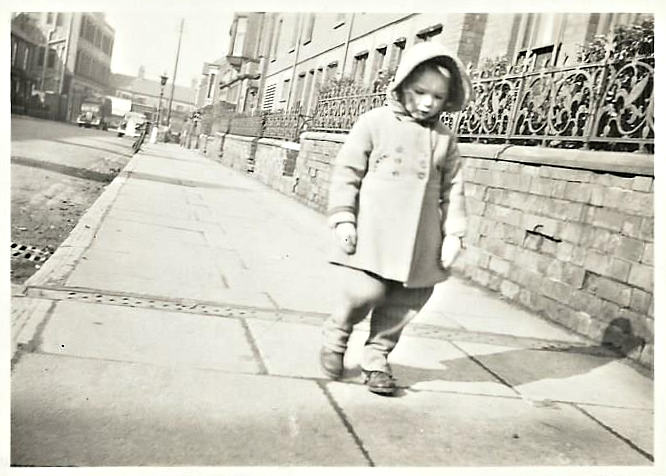
Coinciding with my school days at John Gulson, I had a paper round and I used to hate Thursdays since a lot of people had weekly magazines delivered then as well. Fridays were nearly as bad because almost everybody had to have a copy of the Radio Times. I had over 80 customers on my round that went up my road, Station Street, then turned left, and the bulk of my round took in Blackwell Road before going down Foleshill Road as far as Gambles' Buildings, which were top shops that stood at the entrance to the "Rec". Off my road were some houses known as Rosewood Cottages, and my job every weekday morning was to act as a "knocker-up" to the male members of the Beech family. Mrs. Beech would have left for her work as a cleaner at Webster and Bennetts in Northey Road a good hour or more before I got there about 7:10 AM. After finishing school at 4PM I did the same round again delivering the Coventry Evening Telegraph. Saturdays had two rounds, and I delivered on Sunday mornings as well, all for my weekly pay of seven shillings and sixpence (37 and a half pence in today's currency). The newsagent charged his customers twopence a week for delivery and had he given me that for every paper I would have been paid eleven shillings and eight pence (57p). There aint no justice!!!
Having just seen Mick Billings memories of Little Park Street & Spon Street on this wonderful website, I was reminded of the Eagle comic, and I bought the first edition from my newsagent employer. How I wish I had the foresight to have kept it safe along with my badge! Nowadays I understand it would be worth a very large amount. Dan Dare and Digby were great and I have never forgotten that Digby referred to an event that he said had happened in May when communicating back to earth, courtesy of the Mekon of Mekonta, who was holding them as prisoners. He kept emphasizing "May Day, May Day" which we know as the HELP call of aircraft and ships when in distress.
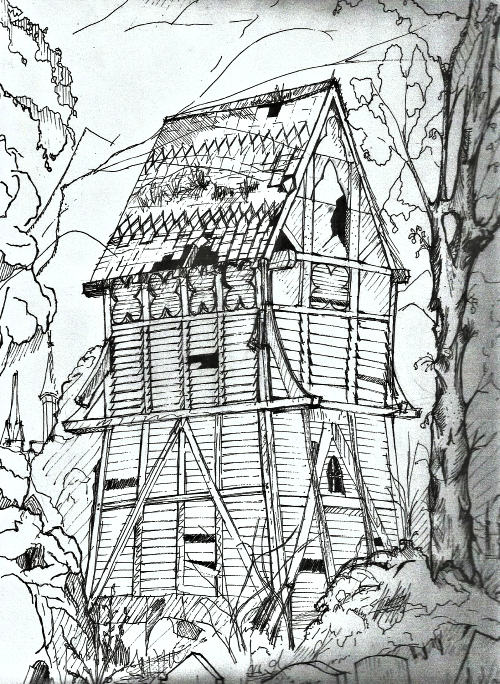
During this time I was a member of the Boys' Brigade, and a prize I won was a leather bound and embossed book with the BB Anchor and motto Sure and Steadfast. Its title was Kipps by H. G. Wells. We used to go camping every year and the first time I went was at Mundesley on the Norfolk coast. I remember a photograph being taken and published in the Coventry Standard of me standing next to the well-loved Mayor of Coventry Harry Weston when he visited us. It was the first time I had been on holiday and the first time swimming in the sea. To coin an over-used phrase - it was fantastic! Some of the beach was cordoned off with barbed wire, since there was a danger that all the mines that were planted in the sand during the war had not been cleared.
In 1954 I actually went to Eton College. No, not as a pupil, but camping on the revered playing fields there of which it is said that the Battle of Waterloo was won. The occasion was the centenary of the birth of the BB founder, Sir William A. Smith, when boys from all over the world came. He founded the BB in 1883 and it was the world's first uniformed organization for boys. At this camp I was taught how to play squash, hockey and Eton Fives. The real highlight for me was the only day it didn't rain when we went on a boat trip on the Thames from Marlow to Maidenhead. The mud was reminiscent of the newsreel films you sometimes see at the Glastonbury Festival.
By the way, some boys from the Falkland Islands came over for the camp and stayed in and around Coventry. Until fairly recently I used to write to one of them called Willie, and he married Norma, a girl from Bell Green. He received a commendation from the Queen for the part he played at Goose Green during the invasion by the Argentinian army. On other occasions we had weekend meetings with boys from the Birmingham battalion at Rugely in Staffordshire. One of these meetings was presided over by Sir Donald Finnemore, a high Court Judge, and another by Sir A. G. B. Owen, a founder of the BRM Formula One car. I cannot be sure, but I think it was powered by a Coventry Climax engine.
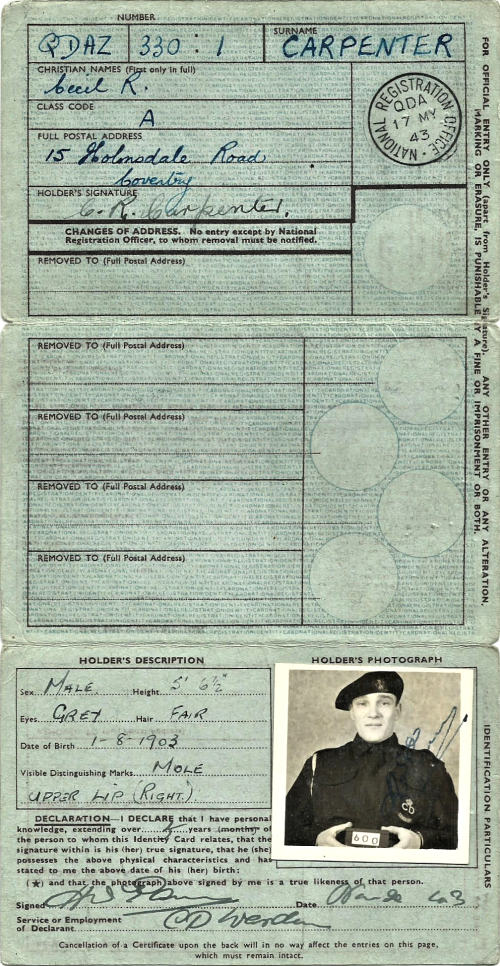
Back to schooldays, we used to play rugby at Jackers Road and Deedmore Road, since there were no facilities nearer John Gulson, and I believe Jack Knight was the teacher who organized our sport. I was pretty good as a Wing Forward and was chosen to play for the school. However when we moved to Caludon Castle we were given the choice of playing rugby or soccer. I chose soccer since I loved playing in goal - and there was also another reason - the boys in my year had grown much taller and heavier than I had, and I used to bounce off them when trying to make a tackle. Caludon had its own playing fields, so there were no more trips to Longford and Bell Green.
When it came to leaving school my Latin teacher, Dai Davies, wanted me to stay on and do A Levels, but my Dad said no, I must earn my keep. As it happened, he did me a good turn, since I had an interview with the Establishment Officer at Coventry Council and I became a Junior Clerk in the Housing Section of the City Teasurer's Department. I think my starting salary was £250 per annum, which was not much less than what my Dad was getting as a storeman with the G.E.C. at Helen Street. My boss in Housing was C. H. Dodson, affectionately known as Doddy by most of the ladies I worked with. He was also known as Palooka, since he wrote the bridge notes under this pseudonym in the Coventry Evening Telegraph.
As well as having a first class introduction into the world of work, I also had to have further education by studying at the Technical College on day-release for the Local Government Clerical qualification. We were joined by Police Cadets for some subjects.
I hated Economics!!! The laws of supply and demand, combined with elasticity is about all I can and want to remember.
However, I was rescued from this dreary subject by the arrival of a brown envelope marked O.H.M.S. calling me up for National Service in the Royal Air Force, and so my boyhood became a fond memory.
I had become a young adult, old enough to fight and die for my Queen and country, but not old enough to vote, or to get married without my parents' permission unless I eloped with a bride-to-be at Gretna Green in Scotland. Young lovers really did elope in those days.
Website by Rob Orland © 2002 to 2026